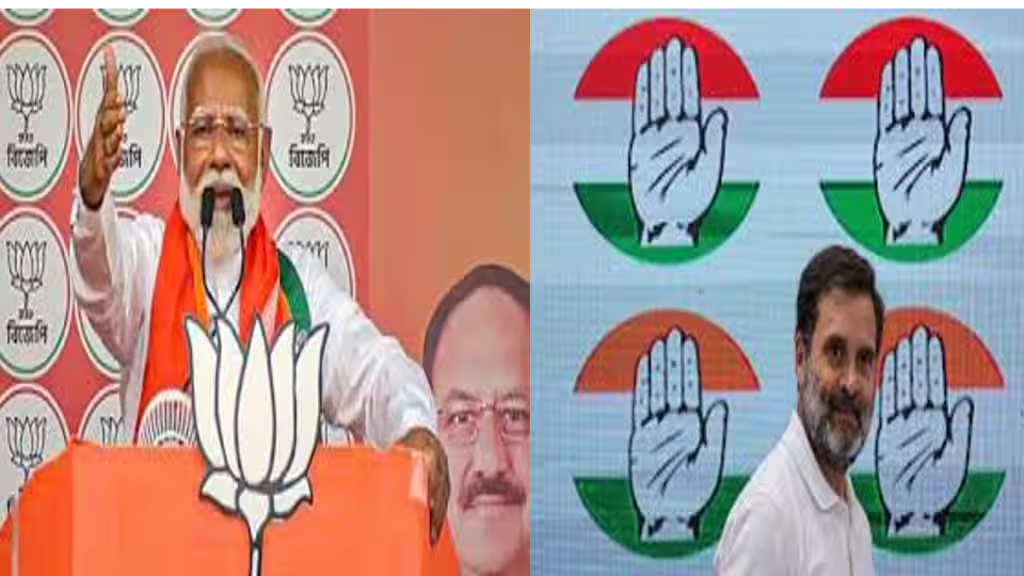As the nation edges closer to the pivotal Lok Sabha Election results on June 4, the crescendo of anticipation reaches its zenith with the final phase of voting on June 1. In this charged atmosphere, the electorate stands poised to usher in a new government. Thus, it becomes imperative to scrutinize the manifestos of the key political contenders. With global brokerages projecting a robust growth outlook for India, the pertinent question arises: Will the manifestos of the BJP and Congress bolster this trajectory, or will they impede progress?
Economic Ramifications
Amidst the cacophony of election promises, the Congress’s ‘Nyay Patra’ and BJP’s ‘Modi Ki Guarantee’ stand at the forefront. The critical issue at hand is deciphering what these pledges entail for the economy. Prevailing economic sentiment suggests that Congress’s generosity may strain fiscal discipline, whereas policy continuity, as advocated by the BJP, is perceived as essential for sustained economic momentum.
Fiscal Prudence Vs Populist Freebies
Garima Kapoor, Senior Vice President and Economist at Elara Securities, articulates that the BJP’s manifesto underscores prudence over populism, emphasizing macroeconomic stability, infrastructure development, and asset creation as growth catalysts. The welfare schemes enumerated are largely extensions of existing policies, thus not anticipated to cause fiscal slippage in the FY25 budgeted deficit.
Conversely, the Congress manifesto is replete with promises such as farm loan waivers, a proposed Mahalakshmi scheme involving annual cash transfers of Rs 1 lakh, increased MGNREGA wages, and legal MSP guarantees. Kapoor estimates the financial burden of these commitments at Rs 10-15 trillion, equating to an addition of 3-4.5% of the projected FY25 GDP, potentially devastating India’s fiscal health and diminishing capex allocations.
The Imperative of Policy Continuity
In a recent report, Tanvee Gupta Jain, UBS India Economist, delineates three potential post-election scenarios: a BJP single-party majority, a BJP-led coalition, and a fragile coalition helmed by the INDIA alliance.
Without predicting electoral outcomes, UBS posits that a BJP majority would likely ensure policy continuity, favorable for business sentiment and a long-awaited revival in private corporate capex. This scenario may also see further supply-side reforms, including advancements in clean energy transitions, increased infrastructure expenditure, and a manufacturing push, alongside targeted policies benefiting youth, the impoverished, women, and farmers.
A BJP-led coalition might maintain similar reform momentum, though some contentious policies could stall. Fiscal discipline concerns would be minimal in this case. However, a weak coalition could provoke apprehensions regarding fiscal discipline and government decisiveness, potentially delaying private corporate capex recovery and supply-side reforms due to diminished business confidence.
Historical Manifesto Fulfillment (2004-2024)
Despite the absence of legal mandates for manifesto adherence, UBS analysis reveals that the Modi administration has been more effective in realizing its manifesto promises compared to the Congress. The Modi government’s balanced approach to economic reforms and social welfare for the underprivileged—encompassing potable water connections, housing support, medical insurance, bank account access, free LPG connections, and food rations—has garnered favor.
Gupta notes that beyond economic reforms, the government’s handling of the Covid-19 pandemic, the construction of the Ram Temple, and the abrogation of Article 370 have bolstered support, though unemployment and inflation remain critical concerns. The mixed rural recovery and rising women-centric policies also play significant roles.
In summary, as India braces for the outcome of the 2024 Lok Sabha Elections, the contrasting economic philosophies of the Congress and BJP manifestos will undoubtedly shape the nation’s future trajectory.


